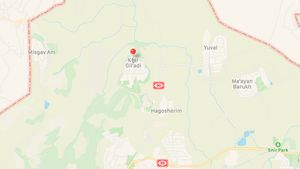JAKARTA - The Ministry of Religion clarifies the issue of food products that are given the names "tuyul", "taak", "beer", and "wine" and have halal certificates issued by the Halal Product Guarantee Agency (BPJPH).
Head of the Center for Halal Registration and Certification of BPJPH of the Ministry of Religion Mamat Salamet Burhanudin said the issue was related to product naming and not about the halalness of the product.
"This means that the public does not need to hesitate that products that have been certified halal are guaranteed to be halal. Because they have gone through the halal certification process and received halal provisions from the MUI Fatwa Commission or the Fatwa Committee for Halal Products according to the applicable mechanism," said Mamat as quoted by ANTARA, Tuesday, October 1.
Mamat explained that the naming of halal products has been regulated by regulations through SNI 99004:2021 concerning general requirements for halal food and MUI Fatwa Number 44 of 2020 concerning Use of Names, Forms, and Packaging of Products that cannot Be Certified Halally.
The regulation emphasizes that business actors cannot apply for registration of halal certification of products under the name of a product that is contrary to Islamic law or contrary to applicable ethics and propriety and growing in society.
However, in reality, there are still names of these products that get halal certificates, both those whose halal provisions are issued by the MUI Fatwa Commission and the Fatwa Committee for Halal Products.
"This happens because each of them has different opinions regarding product naming. This is evidenced by our data in Sihalal," he said.
He gave an example of a product using the word 'wine' whose halal certificate was issued based on the halal provisions of the MUI Fatwa Commission totaling 61 products and 53 halal certificate products issued based on the determination of halal from the Fatwa Committee.
Another example, products with names using the word 'beer' whose halal certificates are issued based on halal provisions from the MUI Fatwa Commission total 8 products. Then 14 halal certificate products were issued based on the determination of halal from the Fatwa Committee.
"We also need to convey to products with names using these two words whose halal provisions from the MUI Fatwa Commission are products that have gone through examination and/or testing by LPH, with the highest number coming from LPPOM LPH as many as 32 products. The rest come from other institutions," he said.
The data, he said, reflects the fact that there are differences of opinion among scholars regarding product naming in the halal certification process.
This difference is limited to whether or not the use of names is allowed, but is not related to the aspect of halal substances and the process which has been confirmed to be halal.
SEE ALSO:
Meanwhile, the Head of the MUI for Fatwa, Asrorun Niam, said that from the results of the investigation, the products obtained a halal certificate from BPJPH through the self-declare route, without going through an audit of the halal examination agency and without determining halal through the MUI fatwa commission.
"The determination of halal violates the MUI fatwa standard, nor does it go through the MUI Fatwa Commission. Therefore, MUI is not responsible for halal claims to these products," he said.
The English, Chinese, Japanese, Arabic, and French versions are automatically generated by the AI. So there may still be inaccuracies in translating, please always see Indonesian as our main language. (system supported by DigitalSiber.id)

















